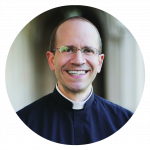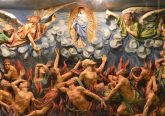Faith’s Absolutes
There were many absolutes in the Catholic Church’s teachings, but now it seems like there is much more flexibility and even changes to things we believed. What happened?
It is not unusual to hear, often through the media, that Church teachings have been altered. Such reports are usually overstated, though teachings and practices can develop as the Church strives to be a more faithful witness to the revelation of Christ. When they occur, these “changes” are frequently a form of development wherein the teaching is not fundamentally changed, but certain aspects are clarified or emphasized.
A SECURE TRADITION
The Church is a living, dynamic reality; It seeks in every age to be Christ’s presence in the world. Its witness entails faithfully teaching and living the truths of revelation. In part, fidelity to this divine truth is accomplished through adherence to the Church’s magisterium—its teaching office—which is the authentic interpreter of Scripture and tradition; its teachings are based on timeless truths given by God.
The Church proposes dogmas, which are those beliefs that are part of God’s revealed truth and that all the faithful must hold. The Catechism of the Catholic Church calls these teachings “lights along the path of faith” that “illuminate it and make it secure” (§89). Because they are derived from divine revelation, dogmas cannot change. Other teachings, however, can develop over time.
DEVELOPMENT OF TEACHING
Unchanging dogmas harmonize with the Church’s understanding of its teaching being living and dynamic—an understanding that dates to the early Church. The Church’s teachings, and our knowledge regarding those teachings, can evolve, which is understood as a growth in understanding rather than a change in teaching.
The Catechism explains that through the Holy Spirit’s assistance, “the understanding of both the realities and the words of the heritage of faith is able to grow in the life of the Church” as well as within individuals (§94). Over time, the Church members can grow in understanding through study and contemplation, which deepens knowledge of revealed truth.
St. Vincent of Lerins in the 5th century suggested how this occurs, cautioning: “It must truly be development of the faith, not alteration of the faith.” According to his understanding, teaching can expand but does not change from one thing to another (Commonitorium, 23).
While the Church’s understanding can develop, church disciplines—which are often confused for teachings—can change, even significantly. Examples include the time required to abstain from food before receiving Communion (changed to one hour) and abstinence from meat on Fridays (now mandated only during Lent). By their nature, disciplines are subject to future change.
TO SAFEGUARD A RELATIONSHIP
The Church’s teachings are important, but there is a risk of reducing the life of faith to simply a set of propositions that must be held. A life of faith is primarily a relationship with God, which is guided by the Church.
With changes in religious education, catechesis and preaching, especially since the 1960s, there has been less emphasis on the absolutes of faith, but the Church’s foundational beliefs remain. Revelation has not changed; since it is from God, it cannot be altered. The challenge in every age is to take the truths that God communicates, live them out faithfully, and teach others to do the same.
 Father David Endres is professor of Church history and historical theology at Mount St. Mary’s Seminary & School of Theology.
Father David Endres is professor of Church history and historical theology at Mount St. Mary’s Seminary & School of Theology.
This article appeared in the February 2023 edition of The Catholic Telegraph Magazine. For your complimentary subscription, click here.













